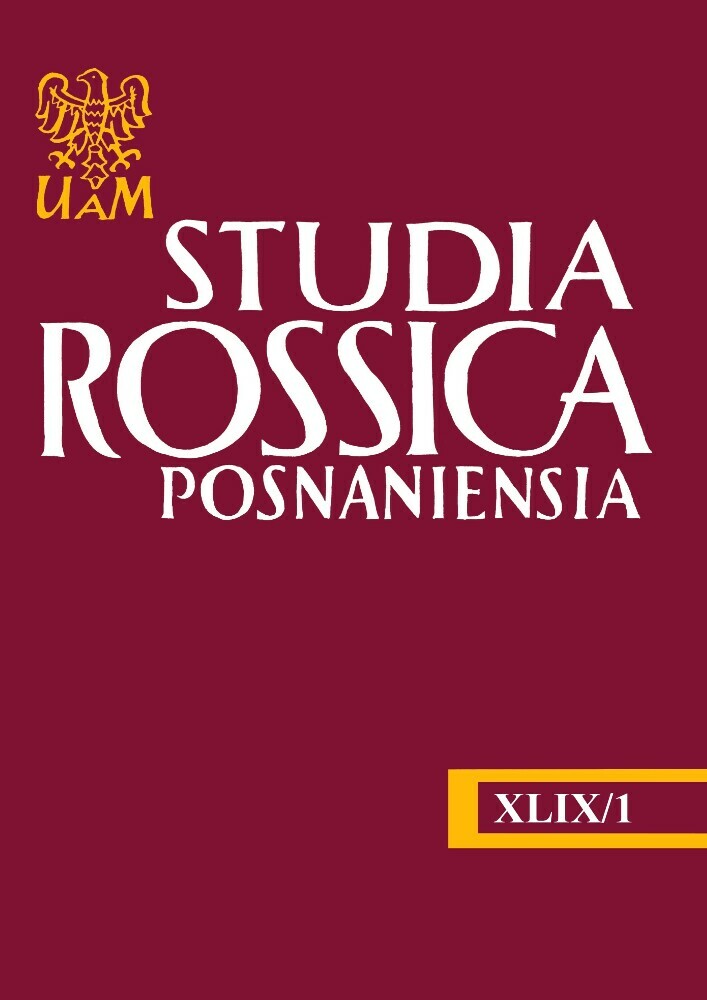Аннотация
In the environment of Russia’s ongoing war against Ukraine, literary translation acquires critical significance as a way to get Ukraine’s narratives of destruction and urbicide across cultural and political borders. This article will focus on Daisy Gibbons’s 2021 translation of Tamara Duda’s 2019 novel Daughter, set in the Eastern Ukrainian city of Donetsk, to examine the translator’s project of reconstructing the complex interplay of Eastern and Western Ukrainian identities embroiled in the narrative of crawling occupation. Daughter tells the story of Russia’s 2014 invasion of Donetsk, dissecting the city’s fragmented identity along cultural and linguistic divides and exploring internal tensions and propaganda-fueled conflicts leading to its eventual downfall. The storyline adopts the female protagonist’s insider/outsider perspective, tracing her gradual evolution from an invisible observer to a fearless insurgent fighting for the survival of her unravelling home. The analysis will centre on the translator’s approach, which combines textual and paratextual techniques to highlight the processes of division and destruction – with their transformative impact on the urban space – and to enter into a visible dialogue with the narrator/protagonist’s voice to amplify and reinforce its distinctly pro-Ukrainian perspective.
Библиографические ссылки
Coward, Martin. “Urbicide Reconsidered”. Theory and Event, 10 (2), 2007. Web. 10.12.2023. DOI: https://doi.org/10.1353/tae.2007.0056
Coward, Martin. Urbicide: The politics of urban destruction. London–New York, Routledge, 2008. DOI: https://doi.org/10.4324/9780203890639
Duda, Tamara. Daughter. Trans. by Daisy Gibbons. Kyiv, Bilka Publishing, 2021.
Flotow, Luise von. Translation and gender: Translating in the ‘era of feminism’. Ottawa, University of Ottawa Press, 1997.
Gentile, Michael. “Pax McDonaldica before the storm: From geopolitical fault-line to urbicide in Mariupol, Ukraine”. Transactions of the Institute of British Geographers, 28 (3), 2023, pp. 1–6. Web. 10.12.2023.
Goonewardena, Kanishka, Stefan Kipfer. “Postcolonial urbicide: New imperialism, global cities and the damned of the Earth”. New Formations, 59, 2006, pp. 23–33.
Goyette, Jared. “Literary translator Daisy Gibbons explains why cultural work is vital for Ukraine now”. Chytomo, 11 August, 2023. Web. 10.12.2023. https://chytomo.com/en/literary-translator-daisy-gibbons-explains-why-cultural-work-is-vital-for-ukraine-now/.
Horikha Zernia, Tamara. Docâ. Kyiv, Bilka, 2021a.
Horikha Zernia, Tamara. “Vid avtora”. Docâ. Kyiv, Bilka, 2021b, pp. 4–5.
Lotbinière-Harwood, Susanne de. “The body bilingual”. Re-belle et infidèle: la traduction comme pratique de réécriture au féminin / The body bilingual: Translation as a re-writing in the feminine. Montreal, Éditions du Remue-ménage / Women’s P, 1991, pp. 89–168.
Mendieta, Eduardo. “The literature of urbicide: Friedrich, Nossack, Sebald, and Vonnegut”. Theory and Event, 10 (2), 2007. Web. 10.12.2023. DOI: https://doi.org/10.1353/tae.2007.0068
Seidel, Anna. “How to narrate urbicides? Lidija Ginzburg’s and Miron Białoszewski’s portrayals of urban destruction”. University of Bucharest Review, 12 (1), 2022, pp. 51–65. DOI: https://doi.org/10.31178/UBR.12.1.3
Simon, Sherry. Gender in translation: Cultural identity and the politics of transmission. London, Routledge, 1996.
Skorina, Hanna. Knigi pro vìjnu. Facebook, 30 September, 2022. Web. 10.12.2023. https://m.facebook.com/groups/warbookua/permalink/5804636302901547/.
Skorina, Hanna, Maryna Riabchenko. “Veteransʹka literatura – ce pravda pro vìjnu ta možlivìstʹ podivitisâ na svoê žittâ pìd ìnšim kutom”. Армія Inform, 11 January, 2020. Web. 10.12.2023. https://armyinform.com.ua/2020/01/11/ganna-skorina-ta-maryna-ryabchenko-veteranska-literatura-cze-pravda-pro-vijnu-ta-mozhlyvist-podyvytysya-na-svoye-zhyttya-pid-inshym-kutom/.
Sontag, Susan. Regarding the pain of others. New York, Farrar, Straus and Giroux, 2003. “Tamara Duda. Daughter”. Mosaic Press. Web. 10.12.2023. https://mosaicpress.ca/products/daughter-ebook-author-calls-her-novel-a-part-of-ukrainian-war-effort?_pos=1&_sid=b0105c4e9&_ss=r.
Tarku, Iryna. “Family frames of the Russo-Ukrainian war in contemporary Ukrainian literature”. Australian & New Zealand Journal of European Studies, 14 (4), 2022, pp. 47–58.
Venuti, Lawrence. The translator’s invisibility: A history of translation. London, Routledge, 1995.
Vincent, Shelby. “A conversation with Ukrainian translators Kate Tsurkan and Daisy Gibbons on translating and creating amid the Russian invasion”. Translation Review, 114 (1), 2022, pp. 1–10. Web. 10.12.2023. DOI: https://doi.org/10.1080/07374836.2022.2125755
Лицензия
Copyright (c) 2024 Anna Antonova

Это произведение доступно по лицензии Creative Commons «Attribution-NonCommercial-ShareAlike» («Атрибуция — Некоммерческое использование — На тех же условиях») 4.0 Всемирная.

